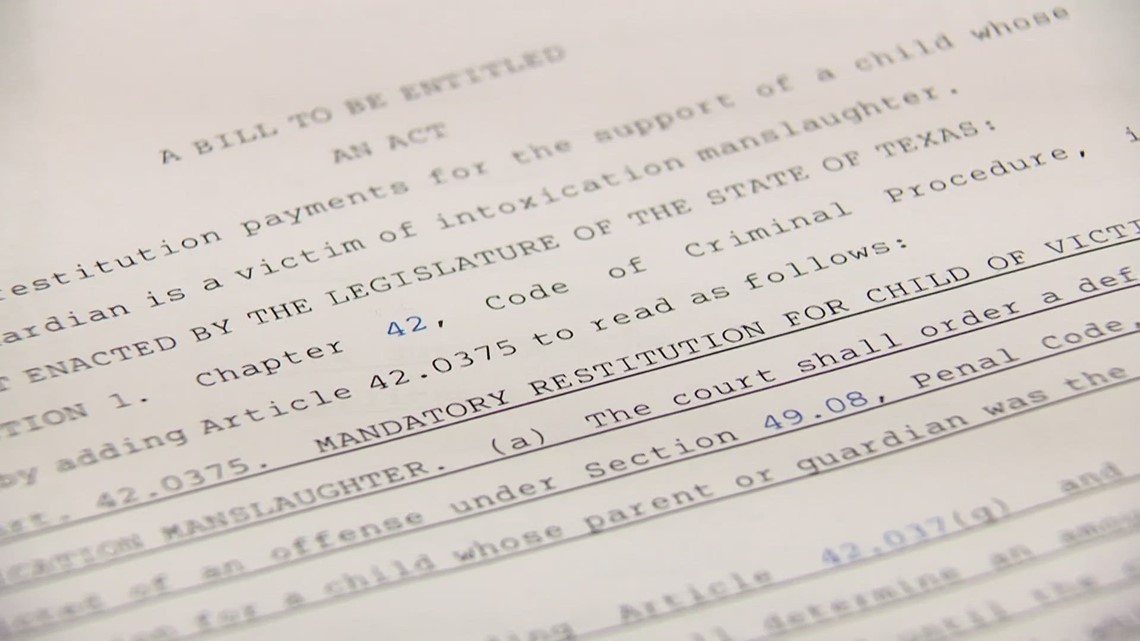
Bentley’s Law, named after one victim’s surviving son, would require people convicted of intoxication manslaughter to pay restitution.
SAN ANTONIO — It’s been two years since Cecilia Williams lost her son to a drunk driver in Missouri. The 30-year-old was in the car with his wife and their four-month-old baby boy when the crash occurred.
“They were hit by a drunk driver who was going, I believe, 109 miles and hour,” said Williams.
Grief comes in waves for Williams, who isn’t sure if she has fully processed the reality that her loved ones are gone. She also now lives with the responsibility of raising the two sons the couple left behind, Bentley and Mason.
“About a month later [after the crash] I decided to check and see what the laws were, you know, what are the consequences of driving under the influence,” Williams said.
Williams felt the consequences on the books weren’t severe enough. She found nothing that supports the families left to financially care for the surviving children.
That’s when she turned her grief into action, advocating for a law that would make convicted drunk drivers pay up.
“I think it’s going to deter people to not get behind the wheel intoxicated,” she said.
Bentley’s Law, named after her surviving grandson, would require people convicted of intoxication manslaughter to pay restitution. Williams said payments would begin a year after the defendant is released from prison and continue until all of the victims’ surviving children turned 18 years of age. It applies the current child support framework that is utilized in child custody cases.
In cases where the defendant received probation, she said it would be up to the judge to determine when payments would begin.
Recently, the Texas version of the bill was signed into law.
“This is a huge win for Texas,” said Carol Levin, said the Government Affairs Chair for Mothers Against Drunk Driving Southeast Texas affiliate.
17 years ago Levin lost her son and future daughter-in-law to a drunk driver in the Houston area. During the legislative session, she testified in favor of Bentley’s Law on behalf of MADD.
“What’s really amazing is because it was about children, no one said no. And that that touched my heart more than I could possibly tell you after losing a child and a daughter-in-law,” Levin said.
Williams said four states have passed their own version of Bentley’s Law so far. She is still working to get the bill passed in her own state of Missouri but she remains optimistic other state lawmakers will take it up for consideration soon.
“Hopefully this streak will continue,” she said.
[embedded content]
Original News Source
Running For Office? Conservative Campaign Management – Election Day Strategies!
